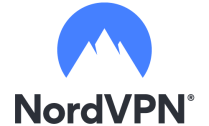
Do you know that the popular search engines including Google, Bing, Yahoo, etc. are data collection tools that possibly abuse your privacy? Yes! You heard it right these search engines track and record everything you search for, including your IP address, agent, a unique identifier (stored in browser cookies), and all the search terms. The information collected then used to hit you with ads or possibly sold to third parties; you can’t opt out the information being collected, until and unless you’re using a private search engine.
So What is a Private Search Engine and How Does it Work?
Private search engines have grown tremendously over the last few years. Until recently, it was quite impossible for anyone to compete with Google in the search realm. However, some of the confident players entered in the ground, and they are proliferating.
So, when in doubt, opt for a private search engine instead, as they do not store your queries or track your steps on the Internet. There are some private search engines with a range of features and methods to keep your searches safe and anonymous. Most of these are not that good-looking but are safer enough to search anything that matters to you.
A few of these anonymous search engines, like DuckDuckGo and StartPage started off as standard search engines, however, after they realized the massive risk associated with data collection; so, they decided to take a different approach.
What Are The Best Private Search Engines? Your Privacy Matters!
When it comes to subjective selection, it’s difficult to rank or determine the best search engine, suiting your privacy consciousness; as there are many factors to consider. Ideally, a private search engine should respect our privacy. Unfortunately, there is a tradeoff, so it all comes down to you and what works best for you.
The list below has some privacy-friendly search engines; test yourself!
1. DuckDuckGo
DuckDuckGo search engine is based in the US and was started back in 2008 with over 400 sources including Bing, Yandex, Wikipedia, and Yahoo. DuckDuckGo has a partnership with Yahoo, Amazon, and eBay; helping it better to filter search results. To finance operations, DuckDuckGo generates sources through advertisements and affiliates. Following the same pattern of Google and other search engines, DuckDuckGo display ads, but not suiting your needs; means you are not being tracked.
Searches are saved – yes! DuckDuckGo save your search engine; don’t be trapped with their verbose privacy policy that mainly discusses other search engines. Scroll down their page and you’ll find this;
“We also save searches, but again, not in a personally identifiable way, as we do not store IP addresses or unique User agent strings.”
This is important as your search terms convey personally identifiable information, like your name or social security number. Why are they saving? The privacy policy states, “We use aggregate, non-personal search data to improve things like misspellings.”
DuckDuckGo added a new extension to their product line; that goes beyond keeping your searches private, and grades websites you visit based on their privacy. We can’t ignore one of the most impressive things of DDG to make your search faster; Bangs – write “!a headphones” and redirect to Amazon searching headphones.
Don’t trust the DuckDuckGo results? Add the !g bang, and redirect you to the google search.
- Crossed 25M+ searches a day
- No annoying “Are you a human?”
- No sensitive data collection
- Blocks dangerous apps
- Log searches terms
- It’s hackable
- Limited search
2. Searx.me
Searx is an open source metasearch engine that gathers the results from other search engines while respecting privacy. One unique aspect with Searx private search engine is that you can run your instance, but that search results won’t be mixed with others (that linked to your IP address). Searx is an open source and available on GitHub.
Another significant aspect of Searx is customizability; modify your search results in the user preferences area and/or narrow down results with different categories – it’s under your control.
Public instances – Since Searx is an open source and freely available, so there are some public instances you can utilize. However, just like Tor nodes, anyone could set a “rogue” instance and potentially log user activity, as Searx explains;
Being a “privacy-respecting, hackable metasearch engine”. Searx.me gathers results from over 70 search services, without tracking or profiling its users, and it is also available over Tor. Searx uses POST requests on browsers, means your searches don’t show up in logs or in browsing history.
- Public instances
- Highly customizable
- Metasearch engine/li>
- Limited search
3. Checkthem
It’s a GOOGLE to find public records of people residing in the US – regional expansion is underway; want to know the history of your to-be spouse? Type in his/her First and Last name (using more filters) and get to know almost everything.
Clicking the search button will reveal an entire report including;
- Background
- Property records
- Public records
- Arrest records
- Criminal records
- Reverse phone lookup
- Reverse phone number
- Marriage records
- Divorce records
- Social media activities
The service is easy to use – type the given details and click search; how about starting from your own self, you will get the matching cases in seconds from the accessible records of 31,542,852.
Registering to its paid account will immediately get access to their contact details, addresses, licenses, criminal records, professional verifications, marriage/ divorce records, property assessments, court records, etc.
Either you want to protect your family from a criminal to check the marriage status of anyone, Checkthem.com will help you checking their backgrounds.
Use the tool to know your new date or partner; people from your past; sex offenders in neighborhood, cheaters and/or even find your own backgrounds to see how far public get to know you.
- Accurate results
- Detailed overview of US citizens
- Offer matches quickly
- User-friendly interface
- Search using filters based on states including Alaska, California, Alabama, New York, etc.
- Free version has limited features
- Only limited to the US
4. Startpage
Startpage is one of the great options for your Google search results, but with privacy. While testing, Startpage did well in the area of search results; better than some other alternatives. While browsing, Startpage gives you advanced filtering options coupled with the ability to search for visual content (pictures and video).
Startpage was initially known as IXQuick, founded by David Bodnick in 1998. Previously, IXQuick and Startpage were separate search engines, but now IXQuick redirects users to Startpage. You will find out more about the company and their policies on their About Us page. Talking about user privacy, Startpage performs quite well – no logging of user data and don’t share information with third parties. Startpage is based in the Netherlands – a region with favorable privacy jurisdiction.
Proxy feature – Another great feature with Startpage is a proxy, that allows you to view images, videos, and websites; find a proxy link next to every search result.
StartPage uses one cookie ‘preferences’ to remember your settings for the next visit. According to StartPage, the cookie is anonymous that expires after 90 days. StartPage also offers another way to remember your settings, rather than a cookie; use an indifferent URL to go to a page with your settings enabled. StartPage handles requests over HTTPS (SSL Encryption). This prevents anyone to monitor traffic on your network from your search terms. StartPage is a European company – means it falls under the strictest privacy laws in the world.
- Uses Google as a backbone, removing identity and tracking information
- Really fast
- A search engine for privacy
- User-friendly interface
- Search using filters based on states including Alaska, California, Alabama, New York, etc.
- Still quite unknown
5. Qwant
Qwant is a private search engine based in France, started in 2013. Being based in Europe, means the data privacy protections are stricter, compared to the United States. It promises to protect privacy (no tracking) and swaying people from getting stuck in the filter bubble.
Another unique feature of Qwant is that it categorizes search results by “web”, social media, and news results. You will find news stories, trending people, events, and other interest stories on Qwant homepage. Qwant continues to grow, with more than 10 million searches per day. If privacy is your concern, Qwant, is the next best among the top search engines, which respect nothing but your privacy. With Qwant, you can even search on social media and also search for music, other than videos and images.
How Qwant makes money? Ads, which might or might not be based on your search results; is that acceptable to some extent? Here’s your subjective analysis comes. Like Bing and Yahoo, Qwant has all the news; it is great for the news junkie. You can also create your account on Qwant, but there could be high chances that you will be tracked; so we are not recommending that. The only drawback is the little slow speed, compared to other private search engines.
- Interface languages
- Social media searches
- 10M searches daily
- Quite slow
6. Hulbee
Hulbee is another private search solution that delivers instant searches without tracking your search or location history while providing intelligent information yet never analyses or stores our information. Don’t worry! Your searches are encrypted against data leaks and middleman attacks. Talking about its options: choose a region for most relevant searches, and even you’re allowed to ‘clear browsing activities‘ to avoid any trace.
Hulbee.com is the efficient alternative search engines for anyone respecting data integrity and the privacy protection. Contrary to search engines, Hulbee don’t leave digital footprints even without countless analyses of users. Your topics, IP addresses, and personal information are not stored for any additional business.
- Instant yet encrypted searches
- Don’t track your search history and locations
- Instant search engine
- Not much
Other Privacy Search Engines
There are a number of other less-known privacy search engines, including:
- Peekier
- MetaGer
- Swisscows
All three options have sound policies concerning of user privacy and are worth trying out. You can also check our post on NZB Search Engines if you wish to search for torrent files.
Considerations For The Best Private Search Engine
Consider these factors when looking for the best alternative search engine.
- Search Results – Some search engines do well in the privacy category but lacks good results.
- Trust – Trust is closely-impossible to quantify, but it’s an important consideration. For the trust factor, look at the history of the company, its reputation and the individuals behind it.
- Privacy – Do check what information the search engine is logging while surfing.
Would you mind if we tell you to anonymize and protect your all the web browsers? We hope you won’t; let’s scroll down!
Want More Privacy? Use A VPN In Combination
Yes! A VPN with anonymous servers can do the same wonders that we expect from a private browser; it hides your real IP address and keep your internet traffic encrypted, you won’t be tracked anymore. Some of the best VPN providers are;
Why Use a Private Search Engine?
The search engine market is one-sided; Google is nearly five times the market share of its closest competitor; is it worth allowing one company to collect data from billions of people? It just handing them, an immeasurable power. What else? We often hear about ISPs or the NSA intrusions into citizens’ privacy, but are we doing anything about it? I think we care least about it.
There is an inherent risk in sharing information with third-parties while browsing. That’s why private search engines are beneficial with a very little risk that your searches will be leaked because most of the private search engines don’t track any information.
“It’s better to be safe than sorry”
Protect your information from the websites and the search engines you use; sites like Facebook and Google is improving their tracking capabilities, but your data is becoming more spread across the web. Using the alternative search engine can help splitting up your data between sites, and also keep big search engines away from tracking and storing your information. Though a private search engine alone can’t keep you absolute anonymous online, but could be a good start; don’t forget to connect to a fast VPN connection when you browse online.
It’s Never Too Late To Get Control Of Your Data
Regardless of the private search engine you choose, always take general online privacy measures to protect in troubling times. This includes a privacy-friendly browser, a VPN service, and other tools to stay safe online.
Hope this information about the top private search engines would be of great help. If you use any other search engine, which is equally private and logless, don’t forget to let us know in the comment section below.






